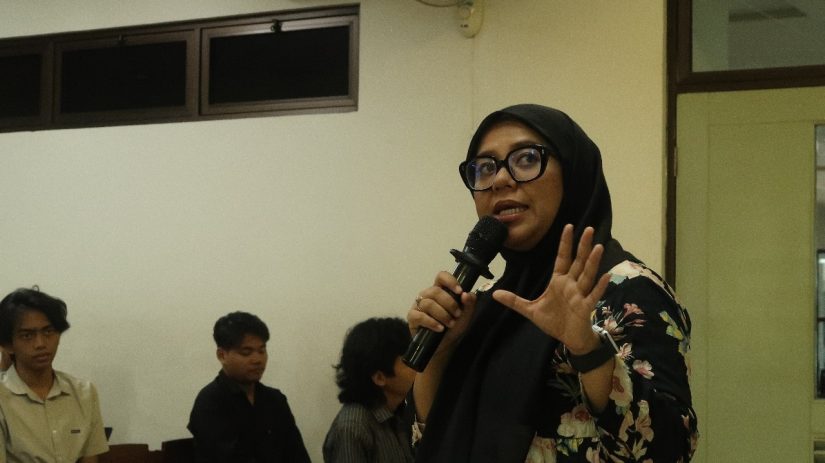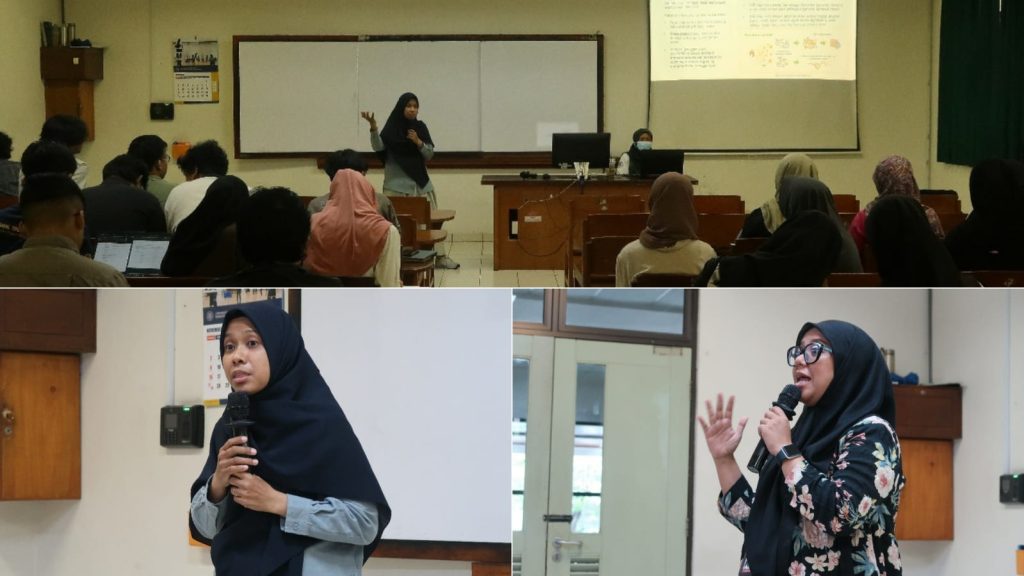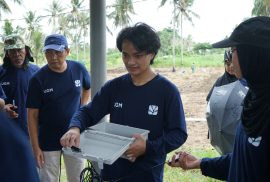
Yogyakarta, November 7, 2025 — The increasing consumption of animal-based products in Indonesia reflects a growing public awareness of the importance of animal protein intake for health. However, behind this trend, the national livestock industry still faces serious challenges in terms of animal care, farm management, and the implementation of animal welfare and halal standards in meat production. Slaughtering practices that do not fully comply with ethical and halal standards have also raised public concern about the quality and safety of animal-based food products.
In response to these issues, the Department of Agricultural and Biosystems Engineering, Faculty of Agricultural Technology, Universitas Gadjah Mada (DTPB FTP UGM) held a guest lecture titled “Environmental Stress and Meat Quality” as part of the Biological Physics course — a continuation of the previous session on November 3, 2025.
The lecture featured two speakers from the National Research and Innovation Agency (BRIN) — Dr. Laila Rahmawati, S.T.P., an expert in Postharvest and Food Analysis Technology, and Diah Pratiwi, S.T., M.Eng., an expert in Livestock Product Technology. The session was moderated by Dr. nat. techn. Rizki Maftukhah from DTPB FTP UGM.
In the first session, Diah Pratiwi, S.T., M.Eng. explained various types of environmental stress that affect livestock, including thermal, nutritional, hydration, and oxygen stress. She elaborated on how animals respond physiologically and hormonally to these stressors, and how they influence product quality, particularly in beef.
“Pre-slaughter stress can cause protein degradation and reduce meat integrity,” she explained. Therefore, she emphasized the importance of maintaining animal conditions, farm environments, and proper handling practices from rearing to slaughter. An animal welfare-based approach is essential for producing meat that is not only safe for consumption but also ethical and of high quality.

Continuing in the next session, Dr. Laila Rahmawati, S.T.P. discussed the relationship between postharvest quality, nutritional content, and halal standards in meat products. She explained the physical, chemical, and nutritional changes that occur in meat during slaughter and processing, as well as the importance of applying proper preservation technologies to maintain freshness and nutritional quality.
She further emphasized that fulfilling halal standards is not merely a religious obligation but also represents humane and hygienic slaughtering practices — aligning with the principles of food safety and sustainable food systems.
This guest lecture supports several Sustainable Development Goals (SDGs), including:
-
SDG 2 (Zero Hunger): by promoting understanding of safe and nutritious animal-based food processing;
-
SDG 12 (Responsible Consumption and Production): through the adoption of ethical, efficient, and environmentally friendly meat production practices; and
-
SDG 5 (Gender Equality): through the active role of women researchers in this field, contributing to the advancement of sustainable food science and technology in Indonesia.
Through this guest lecture, DTPB FTP UGM aims to help students understand the interconnection between biology, technology, and ethics within the animal-based food production system. A fair and scientific approach to livestock welfare is expected to cultivate a generation of professionals who are not only competent in food technology but also morally aware of ecosystem sustainability and the welfare of living beings.
Ultimately, food quality is not only measured by taste and nutrition but also by how it is produced — respecting environmental balance and animal welfare. Through initiatives like this, DTPB FTP UGM reaffirms its commitment to integrating science, technology, and human values in education to build a sustainable, ethical, and equitable food system for all.




